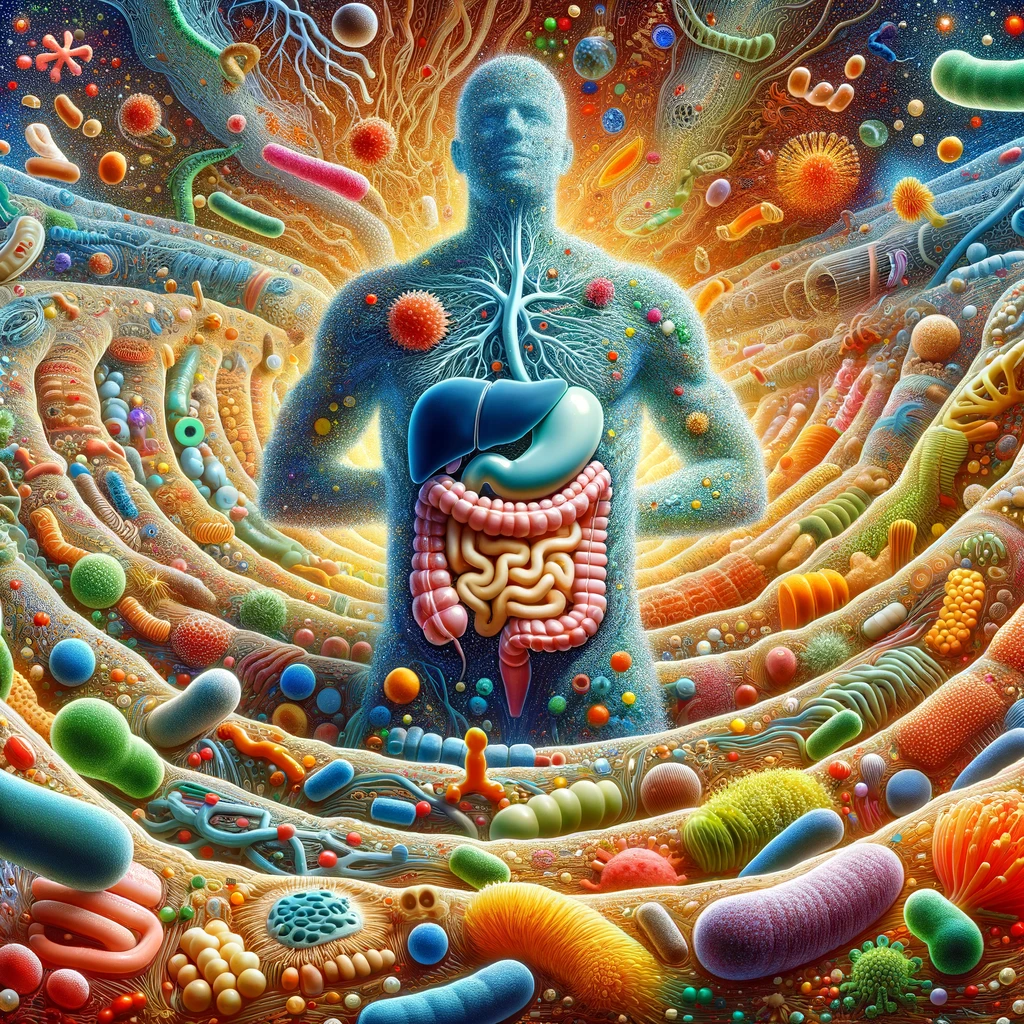The term “probiotics” might seem like modern-day nutritional buzzwords, but these beneficial bacteria have a long and fascinating history, with roots tracing back to ancient practices. In the comprehensive review by Wieërs et al. (2020), probiotics are highlighted for their ability to confer health benefits to the human body, particularly the gut microbiota. This exploration into the intricate relationship between probiotics, our gut, and overall health sheds light on how these tiny yet powerful entities can influence everything from our digestive system to our immune response and even our mental well-being.
A Brief Dive into Probiotic History
The journey of probiotics began centuries ago, with the first instances of gut microbiota modification recorded in ancient China. Wieërs and colleagues describe how the formal study of probiotics, however, kicked off about 50 years ago, with a significant shift in understanding their role in human health. Initially defined merely as substances produced by microorganisms that promote the growth of other bacteria, today’s definition encompasses live microorganisms that, when ingested in adequate amounts, offer health benefits beyond basic nutritional effects.
Probiotics and the Gut Ecosystem
Our gut is home to a complex ecosystem of microbes that play a crucial role in digestion, immunity, and more. Wieërs et al. detail how probiotics interact within this ecosystem, not by permanently colonizing the gut but by influencing the existing microbiota’s composition and activity. Their impact includes enhancing the microbial diversity in the gut, promoting the growth of beneficial bacteria, and indirectly supporting the gut barrier function – all contributing to improved digestion and immune function.
The Barrier Guardian: Probiotics’ Role in Gut Integrity
The gut barrier is our frontline defense against harmful substances entering the bloodstream from the digestive tract. Wieërs et al. illustrate how probiotics fortify this barrier by stimulating the production of tight junction proteins, which seal gaps between intestinal cells, preventing leaky gut syndrome. This mechanism is crucial for preventing systemic inflammation and associated disorders like obesity and diabetes.
Probiotics’ Influence Beyond the Gut
Emerging research highlighted by Wieërs et al. points to probiotics’ potential in addressing psychiatric disorders, suggesting a gut-brain connection that could revolutionize mental health treatment. Studies have linked the gut microbiota’s composition with mood and cognitive functions, indicating that probiotics could offer a novel approach to managing conditions such as depression and anxiety. This insight opens up exciting avenues for using probiotics as complementary therapies in psychiatric care.
Combatting Antibiotic Resistance: A New Frontier
In an era where antibiotic resistance poses a significant global health threat, probiotics emerge as potential allies in preserving our microbiota’s integrity. Wieërs et al. discuss specific probiotic strains that have shown promise in reducing colonization by antibiotic-resistant bacteria, offering a beacon of hope for combating these dangerous pathogens without contributing to the resistance problem.
The Skin Microbiota: An External Ecosystem
The benefits of probiotics extend to the skin, where they can influence the local microbiota, reinforcing the skin’s barrier function and potentially alleviating conditions such as acne and eczema. This application highlights the multifaceted role of probiotics in promoting health, not just internally but also in our external barrier against the environment.
A Synergistic Relationship with Pharmaceuticals
Interestingly, probiotics can also interact with various drugs, affecting their metabolism and efficacy. This interaction underscores the need for personalized medicine approaches, considering the gut microbiota’s composition when prescribing medications to ensure optimal outcomes.
Looking Ahead: Probiotics’ Potential in Modern Medicine
The exploration of probiotics and their influence on the human microbiota, as detailed by Wieërs et al., opens a new chapter in understanding health and disease. As research progresses, it becomes clear that these microorganisms hold significant potential for preventing and managing a wide range of conditions, from metabolic diseases to psychiatric disorders and beyond. The journey of integrating probiotics into clinical practice is just beginning, promising a future where these beneficial bacteria play a central role in holistic health strategies.
This comprehensive review offers a fascinating glimpse into the interconnectedness of our body’s systems and the microorganisms that inhabit them. As we continue to unravel the complexities of the gut microbiota and its impact on health, probiotics stand out as a key component of a preventive health care approach, heralding a new era of treatment strategies that harness the power of these microscopic allies.
References
- Wieërs, G., Belkhir, L., Enaud, R., Leclercq, S., Philippart de Foy, J. M., Dequenne, I., … & Cani, P. D. (2020). How probiotics affect the microbiota. Frontiers in cellular and infection microbiology, 9, 454
